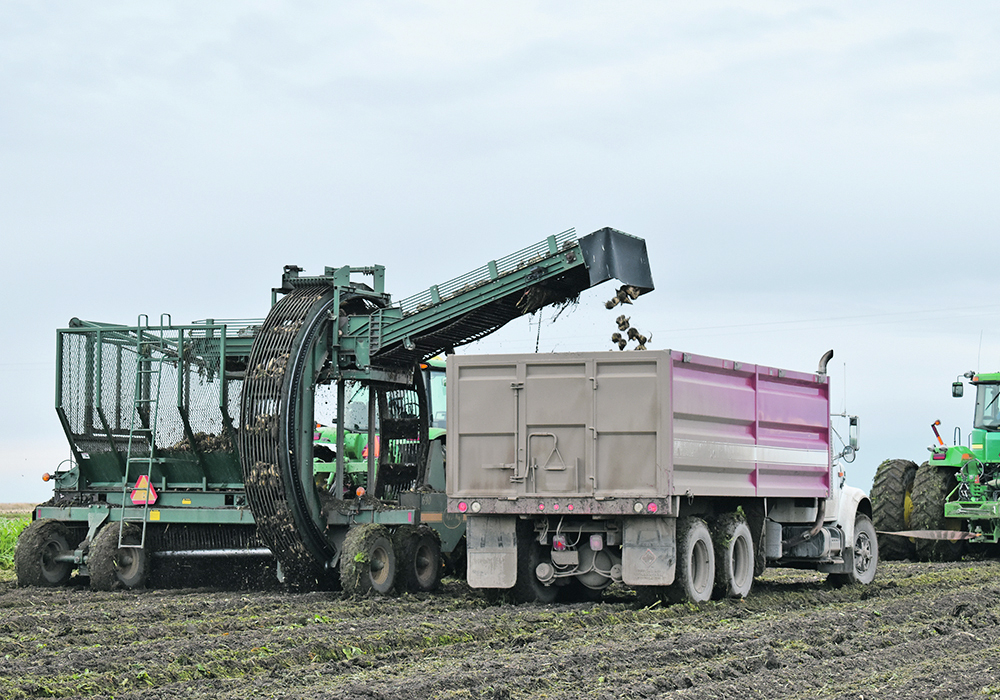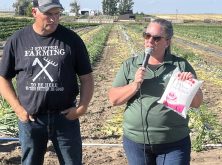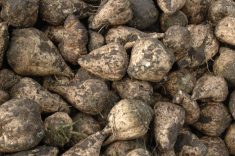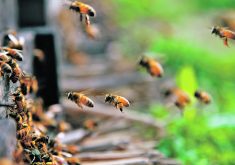How can a strike involving 138 workers at a single refining operation in Vancouver affect the availability of sugar for 11 million Canadians in the four western provinces — and what does this situation tell us about our national food system?
It certainly suggests that our sweet tooth has become too dependent on concentrated and fragile supply chains.
According to the Canadian Sugar Institute, Canada produces about 1.2 million tonnes of sugar annually, and about 94 percent of that is refined from raw cane sugar, imported in bulk, to three refining operations in Vancouver, Toronto and Montreal.
Read Also

High prices see cow-calf producers rushing to incorporate
Farm accountants are reporting a steady stream of cow-calf producers rushing to get their operations incorporated ahead of selling their calves this fall.
They’re owned by two firms: Redpath in Toronto and Rogers Sugar in Vancouver and Montreal.
That means domestic production of sugar beets, the only sugar producing-crop we grow in Canada, meets just six percent of our sugar needs.
That comes from a plant owned by Rogers in Taber, Alta., where about 190 farmers produce sugar beets.
Canada can produce its own sugar. But it doesn’t.
Instead, we import sugar grown under environmentally troubling conditions, and for this we paid US$629 million in 2022, making us the 15th-largest importing nation in the world.
However, based on the results of a single strike that has only been in effect for a few weeks, we are subject to a supply chain that’s not well-equipped to weather even the slightest upset.
Granted, this is at most an inconvenience. Sugar is not a nutritional necessity. Home bakers may be forced to adapt recipes. Beekeepers narrowly dodged the bullet as the strike hit after they’d laid in their annual supplies.
But it’s also a snapshot of our nation’s vulnerabilities in many more critical sectors of our food supply.
During our long, cold winters, we are enormous importers of fresh fruit and vegetables.
The pandemic also demonstrated the fragility of our food systems.
We may be a mighty exporter of calories, but we’re also a prodigious importer.
Where we’re strong producers, the results are excellent. The efficiency of our grains and livestock sectors, and the quality of the food they produce, is impressive.
But the results aren’t nearly as impressive for other staples, such as fruit and vegetables. Outside of our short growing season, we’re hauling it in by truck from California and Mexico for eight or nine months of the year.
It’s easy to look at this and think it wouldn’t be hard to displace some of those transportation costs and produce more sugar or fruit and vegetables here. But that’s overly simplistic.
In fact, the cheapest way to provide sugar to Canadians is probably to ship the raw stuff in and refine it into the white stuff we’re familiar with here in Canada. Whether that’s the best strategy is less clear.
But a balance must be struck: economic efficiency versus all the other things we want to see as a society, such as environmental outcomes, local economic development and food security.
Canada’s sugar beet producers advocate for something along those lines in their call for a domestic sugar policy. It would regulate the amount of sugar coming into the country and focus on increasing domestic sugar production. They’re hoping to see production rise to about 16 percent of Canada’s total consumption.
“This projection would also increase the (gross domestic product) by approximately $248.2 million and provide nearly 2,600 job opportunities in Alberta alone,” it reads on the beet growers website.
In this new, post-globalization era, it might be worth looking at some of these policies again.
Globalization always floated on a sea of cheap energy and relative global stability, after all.
And it appears both could be in short supply in the future. Food security is not a place where a nation wants to hope for the best without also planning for the worst.
Gord Gilmour is a senior editor with Glacier FarmMedia.
















